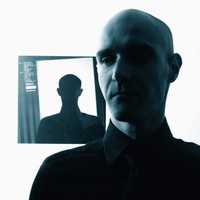Vitalic interview: The Good, the Bad and the Vitalic
Author: Andrez Bergen
Monday, February 27, 2006

So assesses a deferential (and astonishingly frank) Pascal Arbez down the line from his studio residence located somewhere in rural France. Those musicians he's talking about- Just Coldcut, Autechre, Carl Cox, Ken Ishii, Underworld and a wad of other luminaries who played alongside him at the recent huge Electraglide party in Tokyo.
Cast in their midst is Arbez, for his work under the moniker of Vitalic. While not yet quite in the same league as his above-mentioned peers, there's no doubt that his music has been increasingly referred to in the next - if not the same - breath as some, evidenced by his heightened profile as a globe-trotting live act.
Invited to Japan (as well as the Australia) to perform on the strength of his recent album 'OK Cowboy', Arbez wrested initial attention with the release of the 'Poney' EP in late 2001, through DJ Hell's superlative International DJ Gigolos imprint. That was the debut record for Vitalic, although Arbez had previously cut music as Dima.
Residing in France - "but in fact my parents are Italian immigrants", he interjects - inevitably sets up comparisons with fellow famous Frenchies Daft Punk. If his unfazed response is anything to go by, Arbez seems to have gotten used to the prevarication for provocation most journalists can't resist.
"We do have some common points," he allows. "We like disco, we make raw music. But maybe they are more crossover-kind of musicians than me. Also, they deejay and I don't. They live in Paris, and I live in the countryside." He pauses to consider, and then finishes with, "I'm less difficult than they are, and maybe my music sounds more French than theirs."
Indeed, although the past decade's better known purveyors of French electronica would be Daft Punk, Air and Laurent Garnier, there's been a more innovative underbelly represented by people like Mr. Oizo, DJ Cam in his better days, and Philippe Zdar and Etienne De Crecy from Motorbass - not to mention the closer associated, kindred-sounding Vitalic peers Michel Amato (a.k.a. The Hacker) and Olivier Raymond
(Oxia).
Vitalic's own developing sound structure is a hybrid form of electro that has bled together elements as diverse as classical music, '70s pomp rock, '80s nu-beat, and a nod in the direction of Italian disco. In Vitalic's field of vision, it seems, Giorgio Moroder has played just as integral a role as the more recent epoch of electro clash.
Arbez is quick to assert that his own personality is as vital to his music as his ability with synthesizers and knob-twiddling. "My friends used to say that I am passionate, sometimes obsessive. I'm a music lover and a party freak," he muses. "The bad points- I have a changing mood and a tendency to melancholy or pessimism that exasperates my relatives sometimes."
Vitalic's latest album was produced over the course of the time since the project's debut with ÔPoneyÕ four years ago. "After 'Poney' I was mainly touring," he says. "I'm quite a slow worker, and also I do loads of sound designing and research, which is time demanding and not good for fast production. But I think it's good not to use the factory made ready-to-use sound banks [in musical equipment], and much better really to create your own sounds - in order to get your own color."
Some Internet descriptions of his color, however, haven't been all that flattering, though no doubt they were intended to be by the well-meaning souls who coined them. Labels like "the invincible metal disco warrior" and "the [Richard] Wagner of rave" stand out as the most inadvertently offensive.
Arbez, however, is having none of this. "By the 'Wagner of rave', I understand some kind of epic music, which is true in a way, and metal disco can also be a good metaphor - so I like Tags

